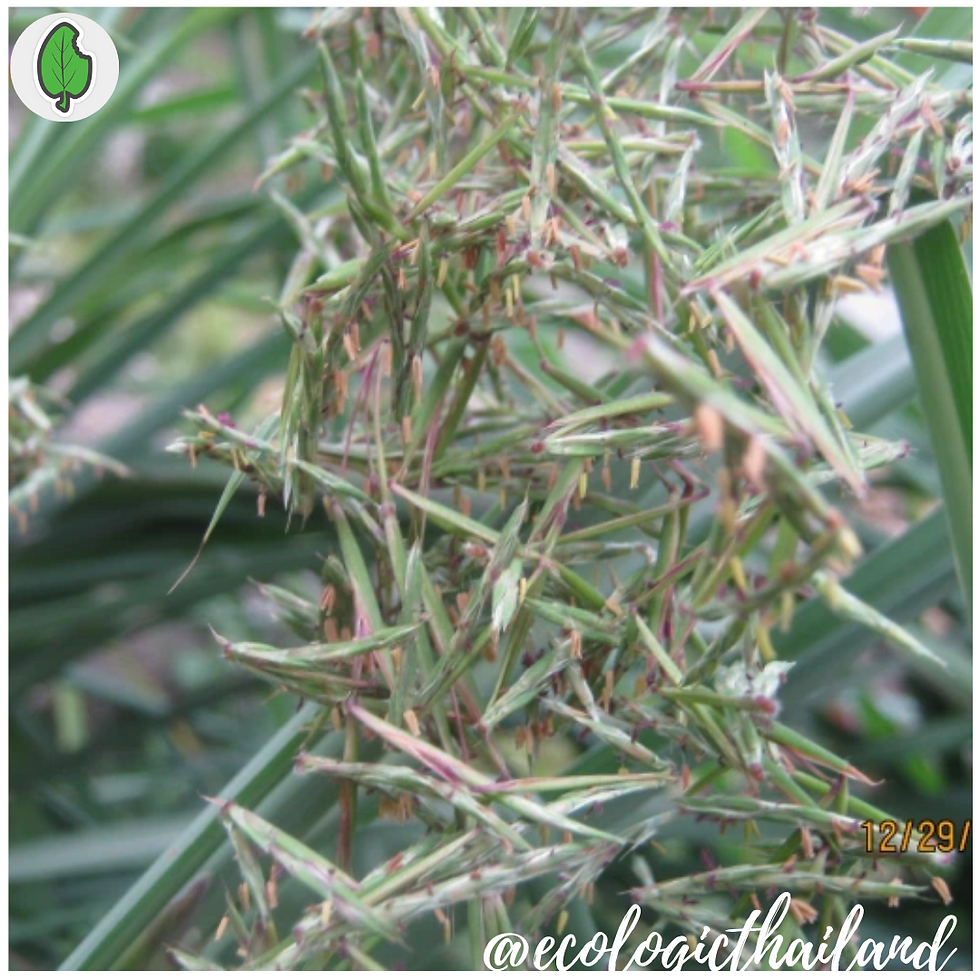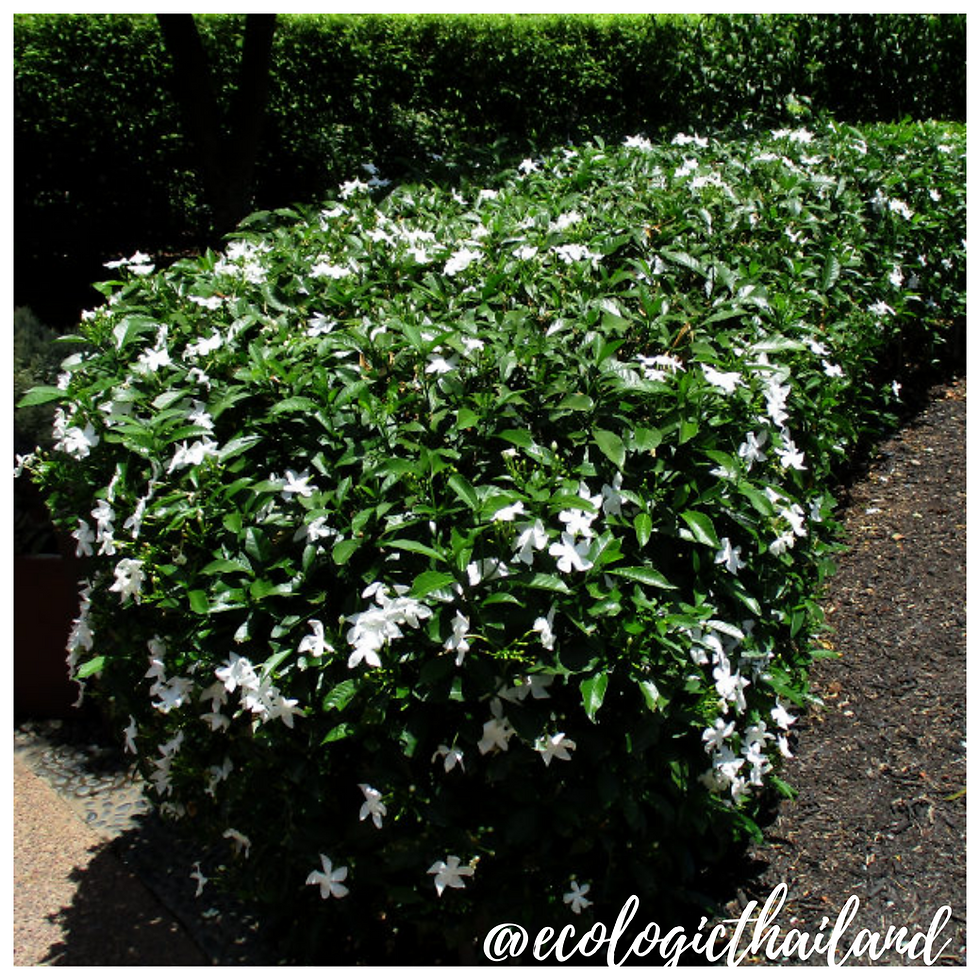Lemongrass
- Eco-Logic Resort
- Dec 15, 2020
- 2 min read
Thakraay | ตะไคร้ | Cymbopogon citratus
Family: Poaceae - Genus: Cymbopogon

Lemongrass is grown behind the Special School of the Thai Child Development Foundation in the 'soap production garden' of the school.
Lemongrass is an aromatic, evergreen, clump-forming, perennial grass producing numerous stiff stems arising from a short rhizomatous rootstock, and growing around 1.5 meter tall.
The plant is widely cultivated in the tropics, both on a commercial scale and in gardens - especially in southeast Asia. It is used as a food flavoring, especially for Asian cuisine; as a medicinal herb; the source of an essential oil; and as a soil improver and stabilizer.
Lemongrass can be harvested the whole year through

THE PLANT
Lemon grass can reach a height of 1.8 meter and will grow for several years, typically its lifespan is 4 years.

THE LEAVES
The grass grows in dense clumps and has several stiff stems and slender blade-like leaves which droop towards the tips. The leaves are blue-green in color, turning red in the Fall and emit a strong lemon fragrance when damaged.

THE FLOWERS
Lemongrass produces large compound flowers on spikes when grown in the tropics.
CULINARY USES OF LEMONGRASS
The heart of the young shoots is eaten as a vegetable with rice.
The basal portions of the leafy shoots have a delicious lemon-like aroma and are used as a flavoring in soups, sauces and curries.
Older leaves can be cooked with other foods in order to impart their lemon-like flavor. They are removed before serving.
A refreshing tea can be brewed from the leaves. It can be served hot or cold.
Click on the link of 'the Food Forest Kitchen' to find recipes with lemongrass, such as an incredible salad!
NUTRITION
It contains vitamins B1, B2, B3, B5, B6 and folate and minerals such as manganese, iron and calcium.
TRADITIONAL MEDICINAL
NOTE: please take advice from a doctor if you are planning to use herbal medicine.
Lemon grass is a bitter, aromatic, cooling herb that increases perspiration and relieves spasms.
The essential oil obtained from the plant is an effective antifungal and antibacteria.
The essential oil contains about 70% citral, plus citronellal - both of these are markedly sedative.
Internally, the plant is used principally as a tea in the treatment of digestive problems, where it relaxes the muscles of the stomach and gut, relieving cramping pains and flatulence.
It is particularly useful for children, for whom it is also used to treat minor feverish illnesses.
Externally, especially in the form of the extracted essential oil, the plant is a very effective treatment for a range of skin conditions including athlete's foot, ringworm, lice and scabies.
It is also applied to ease the pain of arthritic joints.
INTO THE WILD: a down to earth experience

For guests and visitors to Paksong we organize weekly tours "The Edible Forest" and Foraging weekends: Into the Wild. We work with local guides to take you in the jungle of Paksong. After foraging, we will cook a meal with the ingredients, using bamboo together with you!
Come and join and learn about the abundance of food that nature gives us!
INTO THE WILD!


















Comments